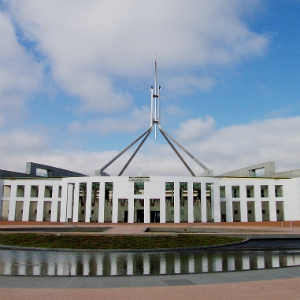Family lawyers react to Hanson Senate speech
Seasoned practitioners have dismissed criticism of Australia’s family law regime delivered by new senator Pauline Hanson as ignorant.

Family law experts have responded to controversial remarks made by One Nation senator Pauline Hanson, who has called for a family law tribunal to replace the courts.
“Family law would be the most discriminatory, biased and unworkable policy in this country,” Ms Hanson said.
Brisbane practitioner Stephen Page dismissed the senator’s assessment that the family law process and its decision-makers favour any one gender who are party to a family law dispute.
“The reality is that many judges are male, it’s not biased against men. It’s just a load of rubbish.
“If men have been found to be violent and abusive, well it’s not likely that court is going to go terribly well for them,” Mr Page said.
He added that the transparency accommodated by the existing court system offers an avenue for review and appeal that no alternative tribunal could provide.
One Nation has adopted a policy that proposes the existing family law courts be replaced by a tribunal of citizens.
“If judges get it wrong, they’re subject to appeal or they’re subject to removal by the Parliament. It’s real simple – if someone alleges that judges are discriminatory, then there are remedies,” Mr Page said.
The partner of Queensland firm Harrington Family Lawyers has over 30 years’ experience in family law. From his perspective, Australia has come a long way in how it handles family law matters.
One Nation’s proposal to replace Australia’s family law courts with a tribunal is actually an old suggestion, Mr Page said, that was scrutinised some years ago by the Howard government and subsequently rejected.
Mr Page said that, as part of the last review of Australia’s family law regime, the focus had shifted to out of court mediation and the establishment of family relationship centres.
“The other thing was to introduce a docket system – so that once a matter came before a judge, it remained before that judge all the way through [proceedings],” Mr Page said.
In her Senate speech, Ms Hanson cast family lawyers as greedy beneficiaries of the broken family law system.
“The only ones to gain are the legal professions, who are rubbing their hands together watching the thousands of dollars coming their way,” Ms Hanson said.
“Is it worth losing the family home? Is it worth the grief it brings not only to you but also to your extended families, not to mention the children? At the end of the day, the answer is no.”
Accredited family law specialist Heather McKinnon is a practice group leader at Slater and Gordon. The veteran family lawyer, who also sits on the board of NSW Women’s Legal Services, said every actor in the family law system was concerned with the interests of children above all else.
Ms McKinnon noted that the majority of family matters coming before the courts are funded by the state. Many of her colleagues in private practice take on legally aided family law matters pro bono, with the needs of children specifically in mind.
“The bulk of family law cases in this country now that go to hearing are funded by the Legal Aid Commission on both sides,” Ms McKinnon said.
“In my role as an independent children’s lawyer, the money that I’m paid doesn’t even cover the costs of turning the lights on in the office, but most senior people will still do that work to make a contribution to kids,” she said.
According to family law partner Genevieve Dee of Cooper Grace Ward Lawyers, practitioners proactively look for amicable, out of court settlement options because family law matters are so often emotionally fraught. In her experience, family lawyers work hard to ensure there is a focus on mediation and negotiated settlement resolutions.
"I have observed that as a whole, family law practitioners actively try to help parties resolve matters in a timely way and, where possible, by avoiding court to reduce costs and stress to everyone involved," Ms Dee said.
"It is no secret the courts are under-resourced. The lack of proper resourcing leads to delays in resolving matters, but that does not make the system unworkable," she said.
Ms McKinnon called for expert consultation before politicians begin debating an issue that affects many vulnerable Australians and young people. This will require conversations with experts in the legal, medical and allied health professions, she said.
As part of a constructive political discourse, Ms McKinnon invited politicians from all quarters to attend a duty list and watch a trial in any of the family courts.
“It is behooved on all politicians who are working in this field to come and have education, to sit for a day in a capital city registry of the court and watch a duty list and watch a trial.
“They are welcome to talk to senior people in the profession about what we know about child development, what we know about neuroscience, about the needs of children at the time of the breakdown of the family unit,” Ms McKinnon said.
The lawyer suggested that while the voices of disgruntled voters who have had negative experiences with the family law system are important, pinning blame on the profession or courts is a senseless exercise.
“People who are damaged in childhood carry that damage for their lives and they’re often people who present in the community as people with an axe to grind,” Ms McKinnon said.
“My understanding is that if you’re a federal member of parliament, the most common constituent appointment you will have is a family law support client or child support payer. It is important that politicians understand that that does not mean that the system is broken,” she said.